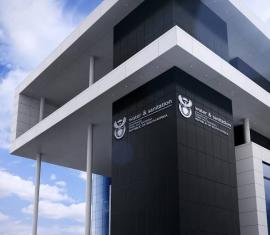
The Department of Water and Sanitation (DWS) has moved to correct what it describes as a misleading portrayal of water boards and their governance in a Sunday Times article published on 7 September 2025.
The article headlined, “Splashing out, Dry Taps as Water Boards drown in excess”, alleged excessive remuneration and questionable expenditure by board members of the country’s seven water boards and the Trans-Caledon Tunnel Authority (TCTA).
In a statement on Tuesday, the department
emphasised that the report not only misrepresented the facts but also created a distorted impression of how board members are remunerated and how governance structures function within the water sector.The department clarified that no board member earns anywhere near the R50 million figure suggested in the article.
“The article gives the impression that individual senior board members may be earning up to R50 million a year in board fees. This is incorrect. The maximum amount earned by a board member in the last financial year was R1.7 million,” the department said.
Claims that board members “pocket” R100 000 per meeting were also dismissed as misleading, with DWS explaining that figures provided to Parliament included both hourly meeting fees and fixed board fees for research, preparation, and other official work beyond meetings.
Board fees, the department stressed, are determined according to an independently benchmarked remuneration policy, approved annually by the Minister of Water and Sanitation and aligned to the Consumer Price Index. Hourly rates range from R1 150 for members of smaller boards to R1 818 for chairpersons of large boards, significantly lower than private sector equivalents.
Responding to allegations that board members claim fees for attending events such as funerals, gala dinners or izimbizo, the department said these gatherings often form part of stakeholder engagement, oversight, and statutory obligations, and are therefore necessary for effective governance. International travel, meanwhile, is subject to ministerial approval and is often curtailed to ensure cost savings.
“Board members are frequently required to attend meetings organised by the Minister, as well as meetings with provincial and municipal governments, including izimbizo. Such meetings are required for purposes of monitoring, accounting, oversight, and stakeholder engagement and are necessary to fulfil the statutory mandates of the water boards. Board members may also occasionally be required to attend a “gala dinner” or a funeral of a staff member or a meeting with trade unions,” the department said.
DWS further highlighted that the total combined cost of board fees is less than 0.1% of the water boards’ operational budgets. Despite the article’s insinuations of poor governance, the department noted that the boards and TCTA consistently receive unqualified audits from the Auditor-General of South Africa, reflecting sound financial management.
In the 2023/24 financial year, water boards collectively reported revenue of R38.9 billion, exceeding projections of R33.2 billion and their combined asset base surpassed R90 billion.
Rand Water and Umngeni-uThukela Water remain the sector’s largest players, underlining their central role in South Africa’s water infrastructure.
“This improvement in revenue collection can be attributed to better credit control measures, particularly by the larger Water Boards,” the department said.
The department emphasised that the resolution of South Africa’s water service delivery challenges requires a wide range of actions, including by DWS, municipalities which are water services authorities, the private sector and the public.
“It is for this reason that the Department of Water and Sanitation held a National Water Indaba in March this year, bringing together all role players to develop a plan of action (see the Indaba declaration https://www.dws.gov.za/wsindaba/declaration.aspx),” the statement read. – SAnews.gov.za
No comments:
Post a Comment